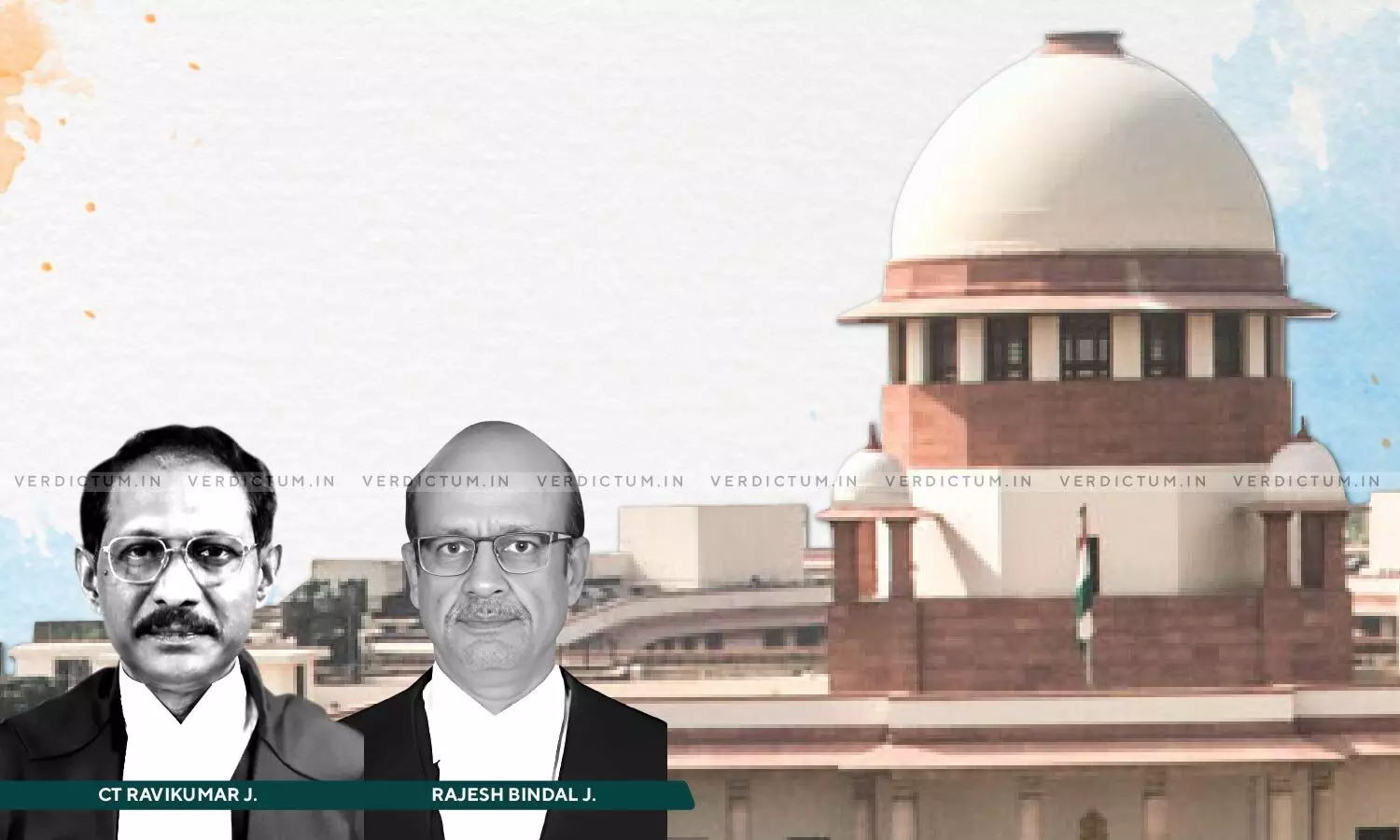
Stability Of Child Is Also Of Paramount Importance; Child Cannot Be Treated As A Chattel: Supreme Court
 |
|The Supreme Court observed that in child custody cases, stability of the child is also of paramount importance.
The court observed that a child (daughter in the case) cannot be treated as a chattel at the age of 14 years to hand over her custody to the father, where she has not lived ever since her birth.
In the present matter seeking custody and not Guardianship, the bench personally interacted with the minor daughter where she was quite categoric that she wished to live with her aunt, where she lived since birth.
Accordingly, a bench of Justice CT Ravikumar and Justice Rajesh Bindal observed, “The fact that appellant No. 1, when custody of the child was handed over to her, was un-married and is now married having two children will also not be a deterrent for this Court to come to the conclusion that best interest of the child still remains with the appellant No. 2 as the child is living with her ever since she was 3-4 months old and is now about 14 years of age having no doubt in her mind that she wishes to live with them”.
“…we find that the welfare of the child lies with her custody with the appellants and respondent No. 10. This is coupled with the fact that even she also wishes to live there. Keeping in view her age at present, she is capable of forming an opinion in that regard. She was quite categoric in that regard when we interacted with her. She cannot be treated as a chattel at the age of 14 years to hand over her custody to the respondent No.2, where she has not lived ever since her birth. Stability of the child is also of paramount consideration”.
As per the facts, the custody of a child was sought for who was born to respondent No. 2 and his wife. The couple had twin daughters, one of whom was left with the maternal grandmother due to the father's financial difficulties. Later, the child was handed over to appellant No. 2, the real sister of respondent No. 2, and has been living with her since she was 2-3 months old. There were previous legal proceedings initiated by respondent No. 2, including a complaint of kidnapping against the appellants and others, which resulted in a closure report accepted by the court. However, a subsequent private complaint was filed by respondent No. 2 regarding custody of the child.
It was thus argued by the appellants that the child has been living with them for over a decade, and that they provided for her upbringing. The emphasis was laid on that the child's welfare was paramount, and they were willing to provide financial security and stability for her. However, respondent No. 2 contended that they are capable of providing for the child's needs and education and expressed concerns about the child's identity being lost and the importance of her being reunited with her twin sister.
The High Court thus in the impugned order directed the Registrar (Judicial) of the Court to recover the child from the custody of appellant No. 2 and respondent No. 10, particularly from appellant No. 1 and respondent No. 10 and to hand over to respondent No.2. The authorities of the State Government were also directed to execute the writ of Habeas Corpus and hand over the child to respondent No. 2. Therefore, the present petition was filed seeking restoration of her custody from her biological father.
Accordingly, the appeal was allowed while setting aside the order passed by the High Court.
Cause Title: Shazia Aman Khan And Another v. The State Of Orissa And Others [Neutral Citation: 2024 INSC 163]